Meet Hong Kong pro rugby player, Chloe Chan
As a female rugby player, I think the main stereotypes are “girls looking too strong,” or “You’re too pretty to play rugby” or “Rugby is too aggressive for women.”
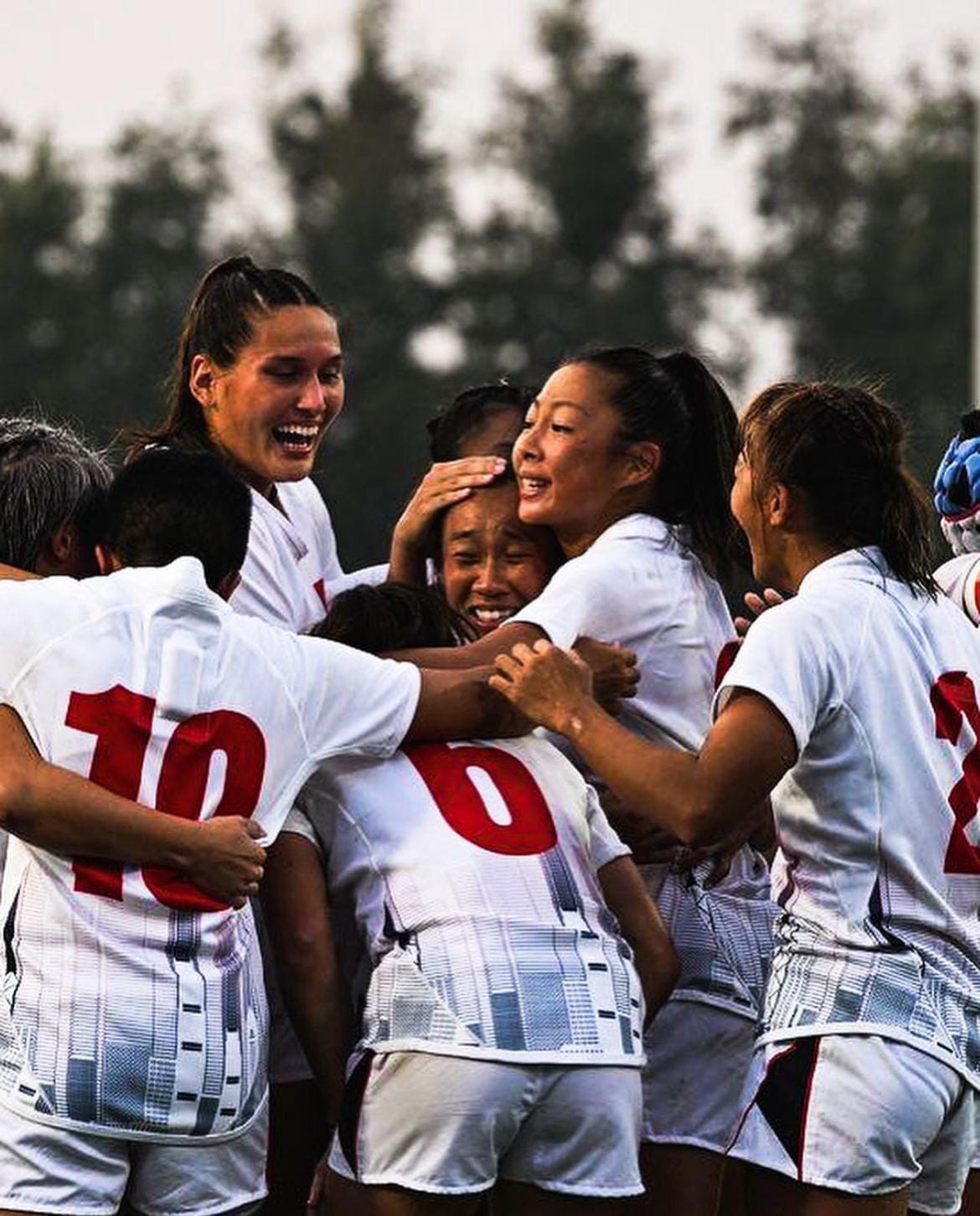
Meet Chloe, a 25-year-old rugby player from Hong Kong with a straightforward and unfiltered approach to life. As a professional athlete training at the Hong Kong Sports Institute, Chloe's journey into rugby began casually in high school when friends invited her to join the local club in Discovery Bay.
Chloe shares her experiences with TMS, from the initial confusion about rugby rules to making the national Under 18 squad at 16. She discusses the physical challenges of the sport, addresses stereotypes faced by female rugby players, emphasizes the importance of teamwork and highlights a career-defining moment – winning a bronze medal at the Asian Games. Chloe's story resonates as a narrative of passion, perseverance and the joy she finds in playing the sport she loves – rugby.
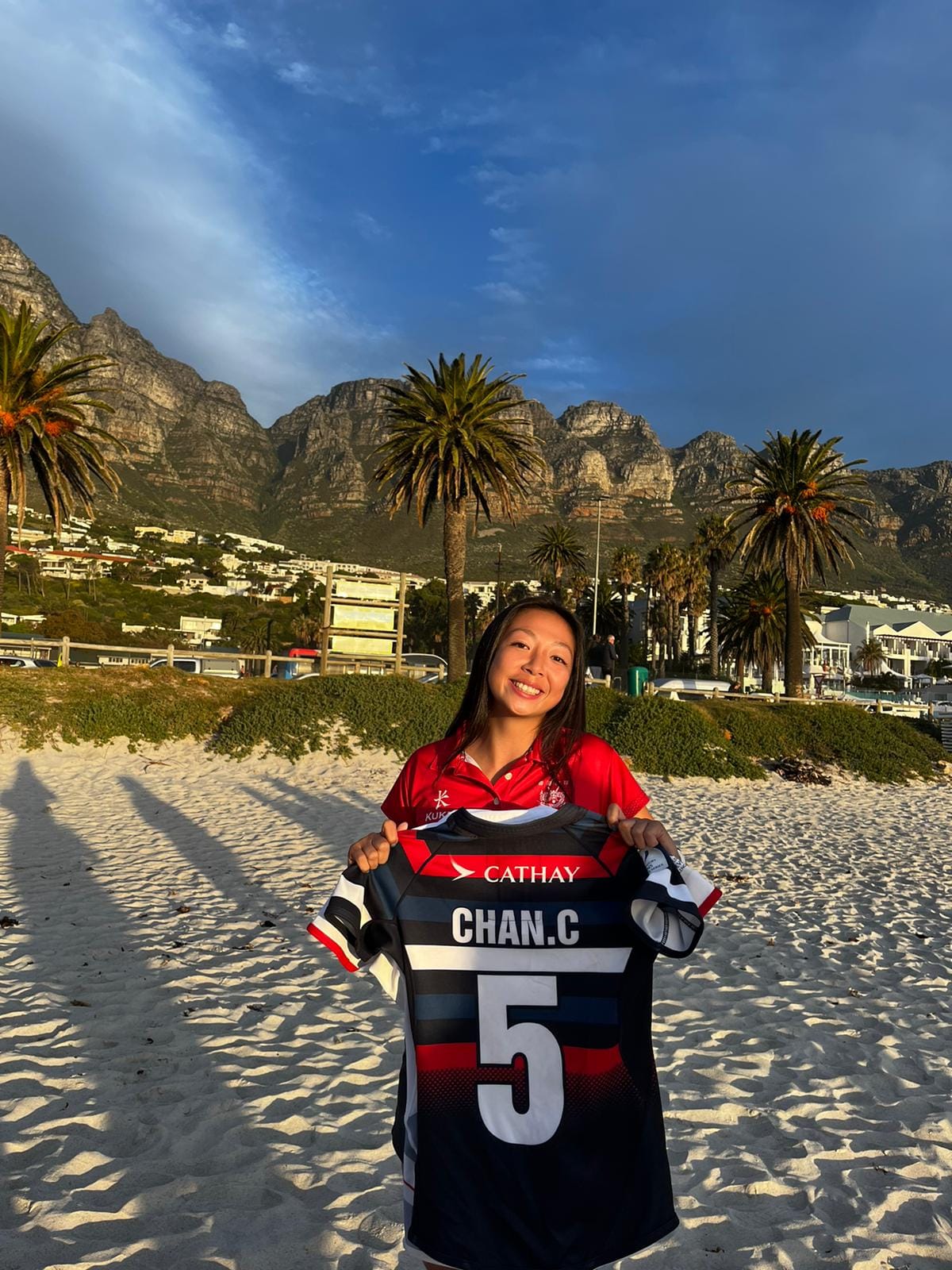
Q: How did you first get involved in rugby, and what inspired you to pursue it as a sport?
I was first introduced to rugby in high school. My friend group all went to the local club in Discovery Bay (DB Pirates); one of them encouraged me to join, and I thought it would be a great way to spend time with friends, so I went along. I still remember my first rugby game and feeling super confused with the rules but coming out after feeling excited and eager to play the next one.
So, after that, I kept going back and playing it throughout high school. I was invited to a national U18s training when I just turned 16. I made the U18 squad being the youngest person there and started to think I could be good at this sport. Since then, I have been training with the youth program. I chose to go to university in the UK and managed to get a sports scholarship. When I came back to Hong Kong after university, I was asked to join the full-time women’s program and have been doing it since.
Q: Rugby is often considered a physically demanding sport. Can you share some insights into your training routine and how you prepare for the challenges on the field?
Rugby is definitely physically challenging so recovery is incredibly important so I can get the most out of training. We train four days out of the week (Monday, Tuesday, Thursday and Friday). A day at the Hong Kong Sports Institute usually involves pitch sessions, gyms, meetings and analysis sessions. Our trainings help us perform the best we can in tournaments. We do fitness tests and conditioning sessions to ensure we are fit enough to compete at the highest levels. In contrast to that, we have more lowkey but important sessions like mobility or stretching to relax our muscles and not overload. To prepare for tough challenges on the field, I make sure I have enough sleep and recovery so I can stay focused on the pitch. I practice some of my role-specific skills like high ball catching to enhance our chances of performing. I also make sure I have all my tactics and techniques nailed down so I am calm going into a tournament, knowing my roles.
Q: As a female rugby player, have you faced any specific challenges or stereotypes in the sport, and how have you overcome them?
As a female rugby player, I think the main stereotypes are “girls looking too strong,” or “You’re too pretty to play rugby” or “Rugby is too aggressive for women.” I literally hear these comments all the time, and it’s such a shame because if people really knew what women’s rugby consists of then they wouldn’t be saying that. It’s such a different game from the men’s and we should not be comparing the two. It’s a long battle of being confident enough to put all those comments aside but having such a supportive system around me has helped massively. I have learned that as long as people who love me are proud of what I do, that is enough. As a female athlete, I really want to portray to young girls that having big muscles is pretty and healthy – rugby is not too aggressive for women; we are strong.
Q: Can you describe the camaraderie and teamwork involved in rugby and how it contributes to the overall experience of playing the sport?
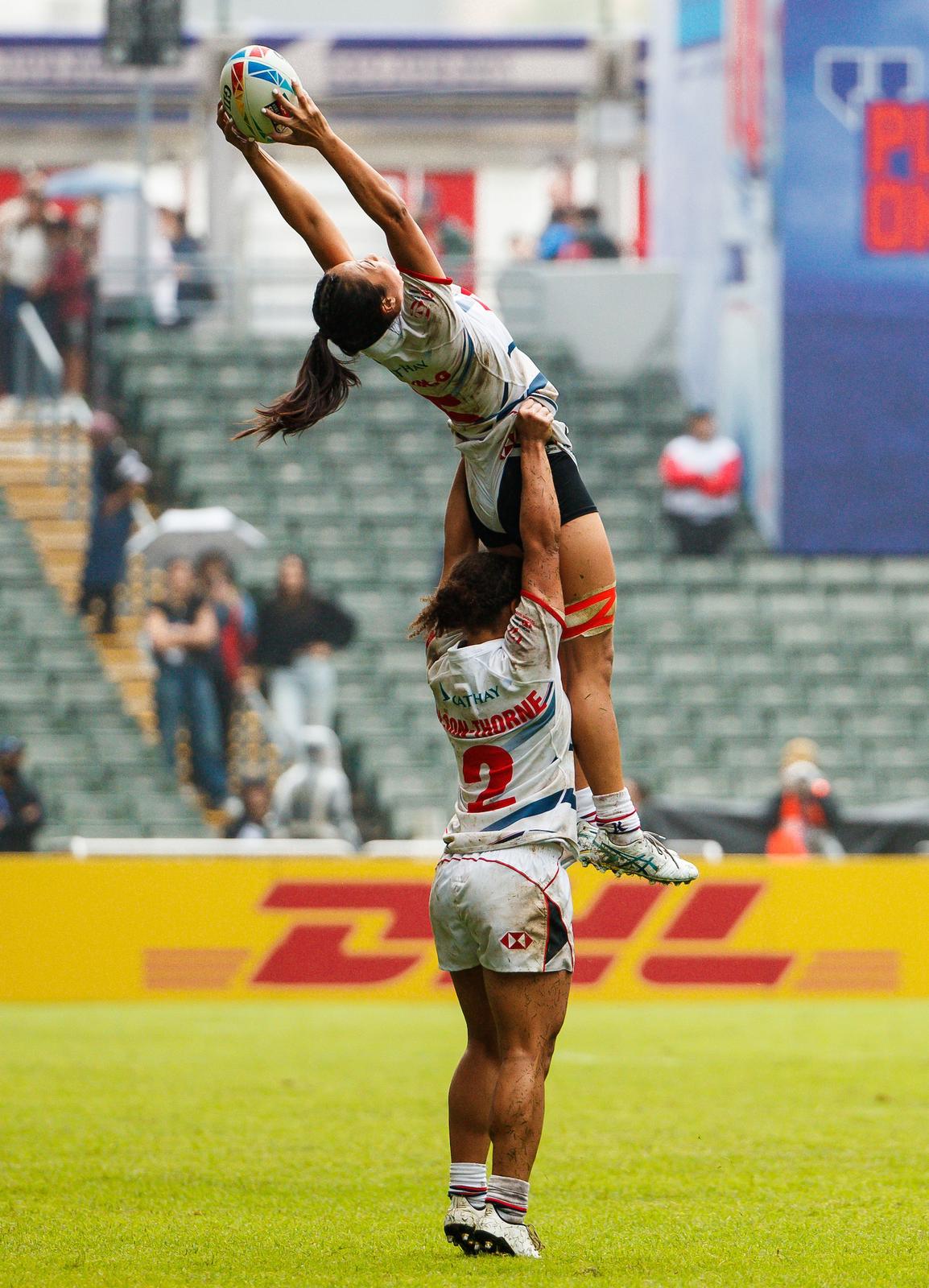
Teamwork is probably the most important value and factor in rugby. You are literally tackling and throwing yourselves around for your team, and you would do anything to help your team win. From all the teams I have played for, all of them talk about teamwork and how I can help the team succeed. At the HKSI we finish each training with a team call of “We are sisters.” Most of us see each other more than our families; we travel all around the world together with the same goal. On that pitch, the most important people are the ones around you; we value teamwork more than our individual talents. Having this sisterhood has made the overall experience of playing the sport extra special. Knowing you have a group of girls who back you all the way and support you no matter what is a blessing and is what keeps me going every day.
Q: Rugby is known for its intense and competitive matches. Can you share a memorable moment or game that stands out in your career so far?
The Asian Games bronze medal match was definitely one of the most memorable games I have played in. We always talk about Asian Games being one of the most important tournaments and going into the tournament, I didn’t know how much this would mean. HK women’s rugby have never won a medal at the Asian Games so this was extremely special. I know some of the girls who have been here a lot longer than me want this medal more than anything so it was amazing to play alongside them and get the medal.
Q: In what ways do you think the perception of women's rugby has evolved over the years, and what do you hope to see in the future for the growth of the sport?
I think women’s rugby has grown a lot in the past 8-10 years. When I was younger in school, there wasn’t a full-time women’s program, and the national youth age grade wasn’t as established as it is now. We now have girls as young as U8s joining all the membership clubs around HK. There are high school girls' teams with a local league. The standard of play is also getting higher and higher, which is so nice to see. I do think there is still massive potential for women’s rugby to grow in Hong Kong. Young girls and women aren't receiving enough advertisements or education about the sport, making it so hard/too late for them to start. I hope in the next few years, athletes like us will be able to promote the sport more and hope for young girls to see that being a full time rugby athlete is great and special.
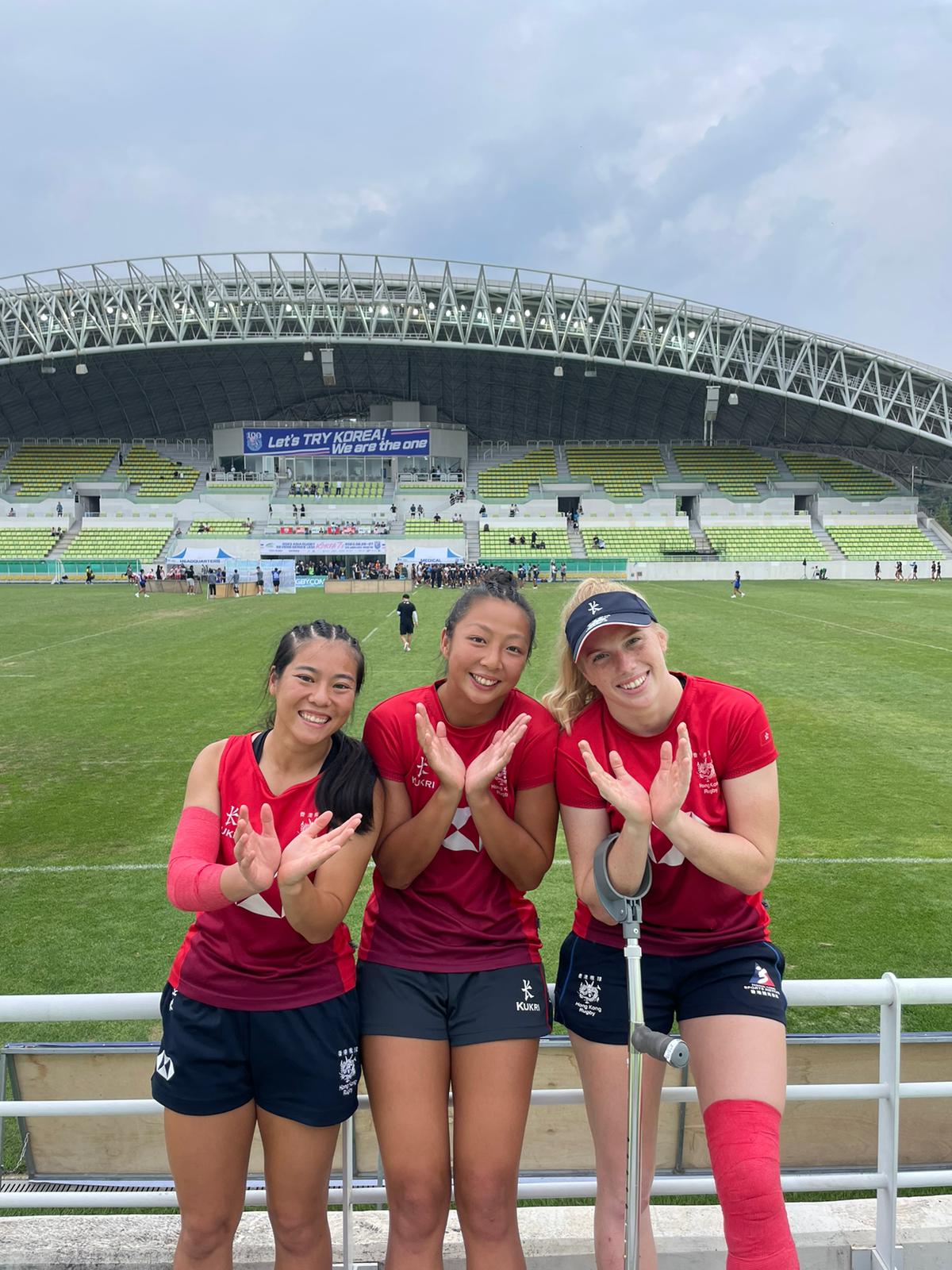
Q: Off the field, how do you balance your rugby commitments with other aspects of your life? How do you decompress?
My first year doing full-time training, I was also finishing my last year of university. I studied physiotherapy, so it was really challenging trying to balance both, plus doing placements in Hong Kong. So many lessons were learned during this time; communication is one of the most important skills I have taken away from this. I had to communicate with my head coach weekly and also check in with my university tutors. I thought I could try and do everything all at once, but I know now that as long as I communicate my schedule and check in often, I can get the best out of both. I also learned that I need to switch off when I’m not training. Doing that means hanging out with my non-rugby friends and family and doing something completely different from rugby. This helped me separate the two so that I am not burnt out doing one thing.
Q: Are there any role models or athletes who have inspired you in your rugby journey, and how have they influenced your approach to the game?
Before rugby, my main sport was tennis, and I played competitively until I was around 16. Novak Djokovic was always my role model. He always talks about focusing on each point, no point worrying about the next game or the result of the game. As long as you put 100% effort into the next point, you are doing the best you can. I bring this into my rugby career, too – just focus on what I’m good at and the next point.
My mum is my biggest role model. She does everything with the biggest smile on her face and is full of energy. She always finds the positive in each situation and never lets the negativity bother her. She makes me want to try new things and do it with a smile on my face.
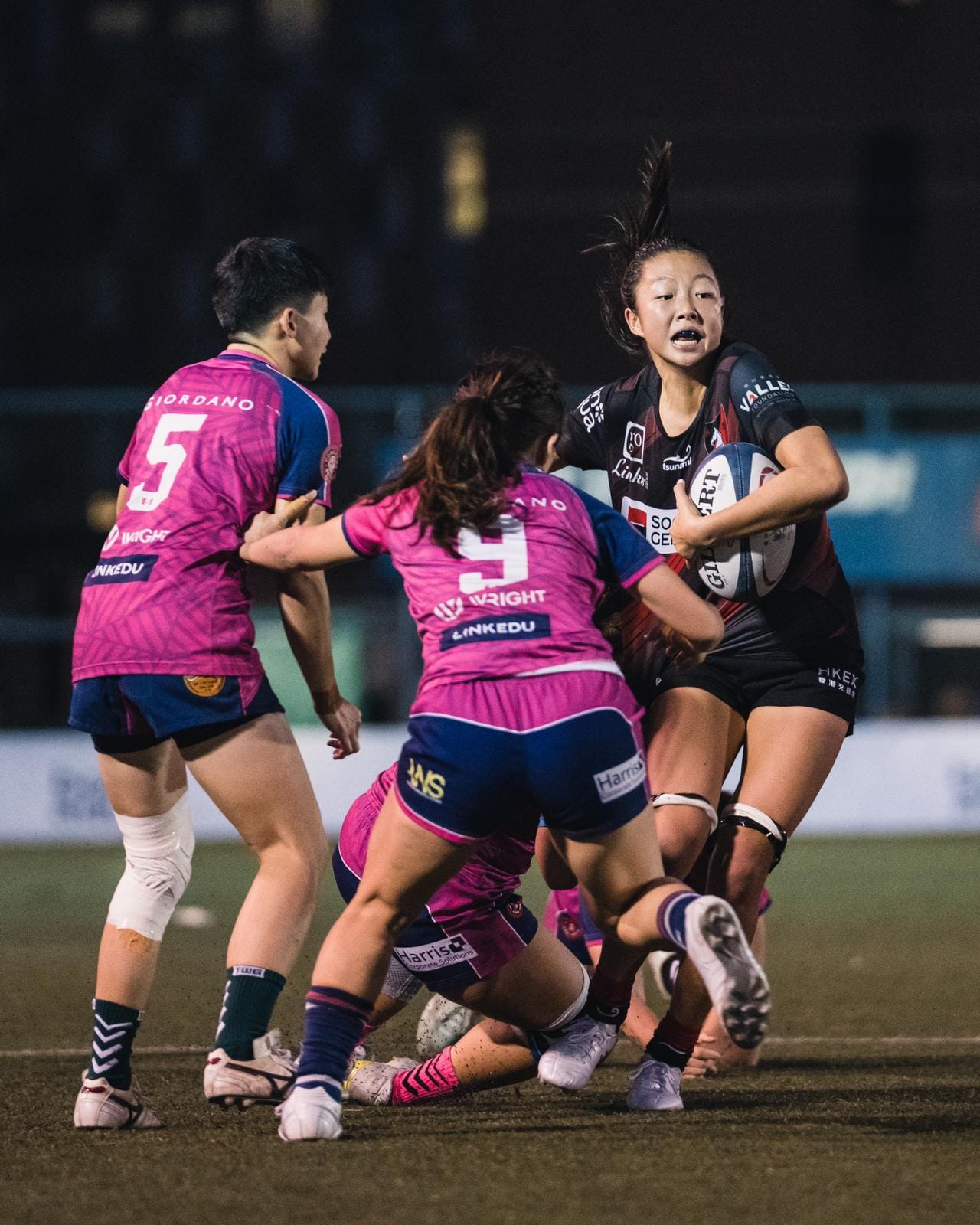
Q: In terms of inclusivity, how do you see women's representation in rugby, and what steps do you think can be taken to encourage more participation?
I think that more and more girls are participating in rugby, whether in school or outside of school. Participation in a sport usually starts with role models, and if young girls see women like them playing rugby, maybe they will start. I think Hong Kong women's rugby athletes should work with brands more to promote the sport and inclusion.
Q: Can you share any advice for aspiring female rugby players who may be looking up to you as a role model?
Always have a smile on your face when playing the sport. If you are always enjoying it and having fun, it won’t seem like a job. Don’t be afraid to try something new; no one is amazing when they start learning something. You never know if you’re going to be good at something unless you try!
Follow Onside Sports Group for a pulse on more up-and-coming sports happenings at @get_onside.




Comments ()